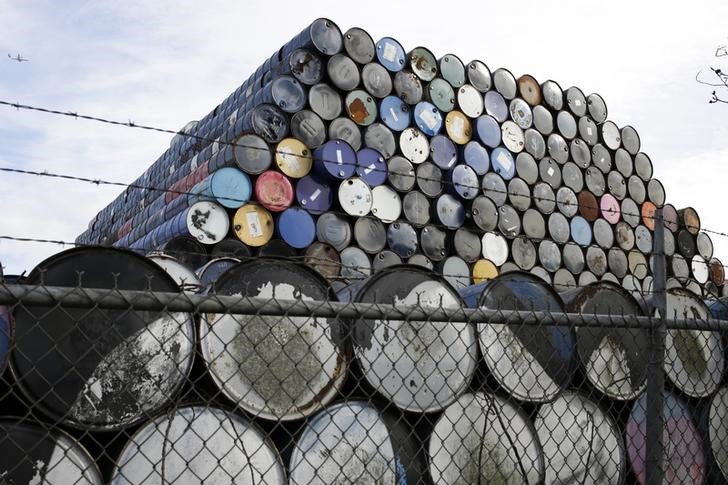By Peter Nurse
Investing.com -- Oil prices stabilized Thursday as traders balanced falling U.S. inventories, a strong U.S. dollar, the passing of Hurricane Ian, heightened geopolitical tensions, and an upcoming OPEC meeting.
By 09:25 ET (13:25 GMT), U.S. crude futures traded 0.2% higher at $82.31 a barrel, while the Brent contract rose 0.2% to $88.20.
Crude oil has seen some strength over the last two sessions, bouncing off an eight-month low as the arrival of Hurricane Ian in the Gulf of Mexico caused disruptions in U.S. crude supply.
That said, the major storm has now made landfall in Florida, and although the Sunshine State has been hit hard, the country’s major oil facilities largely escaped without damage.
Prices were also supported by U.S. crude inventories showing a surprise drawdown last week, the Energy Information Administration reporting that crude stocks fell by 215,000 barrels, which dispelled some concerns over falling short-term demand at the world's largest consumer.
That said, the crude market is still set for its first quarterly loss in more than two years as central banks across the globe, and the Federal Reserve in particular, hike interest rates to combat soaring inflation, at the likely expense of future growth.
The US Dollar Index has climbed to 20-year highs as a result of the Fed’s aggressive actions, and this has weighed on the oil market as this makes dollar-denominated crude more expensive for foreign buyers.
Data released earlier Thursday showed the U.S. GDP contracted by 0.6% in the second quarter, an indication of the economic slowdown at the largest economy in the world.
Additionally, German CPI rose 1.9% on the month in September, up 10.0% on the year, suggesting that the European Central Bank will continue to aggressively hike interest rates having lifted by a total of 125 basis points at its last two meetings.
Traders are also having to factor in heightened tensions between Russia and the West, following the suspected sabotage of the Nord Stream gas pipelines in the Baltic Sea.
Fatih Birol, head of the International Energy Agency, said on Thursday it was "very obvious" who was behind the explosions which caused major gas leaks, with fingers pointed at Russia.
EU leaders will discuss next week at a summit in Prague the bloc's response.
Also due next week is a meeting of the Organization of the Petroleum Exporting Countries and allies, a group known as OPEC+, with Reuters reporting that leading members have begun discussions about an oil output cut.
The group of top producers announced a modest reduction in output last month in an unsuccessful attempt to staunch the oil price slide and may be forced into something more substantial this time around. Reuters reported that Russia may propose a cut of one million barrels a day.
"In theory, this would be a large cut, but in reality, the cut would be quite a bit smaller, given that the group is producing well below its current production targets," analysts at ING said, in a note.
